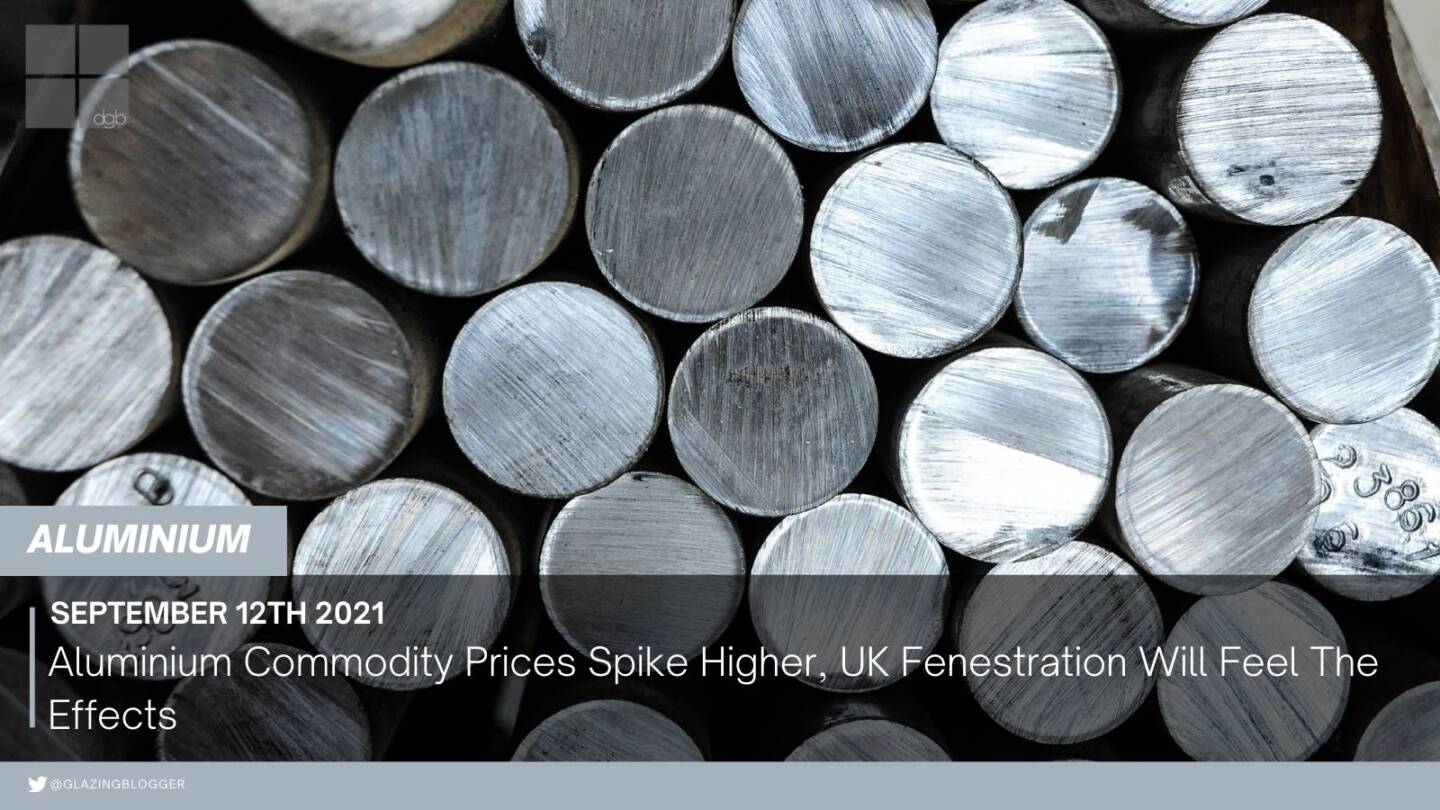The price of pretty much everything continues to go up, putting pressure on the argument that inflation is only going to be a temporary story. Last week the price of aluminium on the commodity exchanges spiked 14% to reach multi-year highs.
We operate in a global supply chain and this spike is only going to add further pressures to prices which will also affect the UK aluminium fenestration sector in the weeks and months to come.
Aluminium prices jump
There are two reasons aluminium has been rising in recent weeks and months. The first is the reason everything else has been rising. High demand coupled with supply problems.
The second reason is geopolitical. There has been a coup in Guinea. Why should that matter you ask? Guinea is the world’s second-biggest exporter of bauxite, the raw material needed to produce alumina, which is the start of the aluminium production process. Though Guinea’s biggest customers are Russia and China, it contributed to prices spiking higher. Prior to this aluminium prices on the commodity markets were already at multi-year highs.
At the close of trade last week the price of aluminium stood at $2916.07 per tonne. For context, the 52-week low is $1730.35. There are fears the political situation in Guinea will affect exports of bauxite, which will add further disruption to a global supply chain that is already being crippled.
At just under $3000 per tonne, the price for aluminium is about to test all-time highs, when it peaked at $3115 per tonne in 2008. Any further shocks or potential disruption is likely to send the price above that record high.
Prices will affect UK fenestration
It’s not just the PVCu side of our sector that is being hit, the aluminium side is too. Whether you’re commercial or residential in the UK fenestration market, these higher prices are going to make their way down to you and it’s going to have an effect.
The obvious place to look is at aluminium systems companies. Some may have hedged and bought three months ahead of time. But with no signs these prices are going to come down any time soon, there is no getting away from the fact that when systems companies have to negotiate their contracts for the raw materials they need, they’re going to be at a significantly higher price than before.
As with the rest of the price increases we have all had, these will make their way down the supply chain, from systems companies to fabricators, then to installers, then to the end-users which are homeowners or those who the commercial units being worked on. Whilst the public purse seems to be able to afford it, these prices do have to be passed down each time. Profit margins have to be kept intact and preserved. Absorbing it all is only going to eat away at the profitability of any business.
It’s not just the systems companies that will be hit. Hardware and component companies are going to feel this too. Aluminium is used in almost every component our sector used. Locking strips, handles, brackets, even fixings. We’re going to notice prices on goods such as this climb further too.
Whilst the public has been willing and able to pay for new windows and doors at these higher prices, our sector does need to be keeping an eye on where the public may begin to draw a line. Whilst prices may continue to keep rising in the medium term, the willingness of the public to keep shelling out higher and higher prices may not be that resilient. Higher inflation is causing all prices to rise. The public is already wary of this and may begin to start becoming more cautious in their spending on big-ticket items. There is a limit, we just don’t know yet where that limit is.
To get weekly updates from DGB sent to your inbox, enter your email address in the space below to subscribe:
By subscribing you agree to DGB sending you weekly email updates with all published content on this website, as well as any major updates to the services being run on DGB. Your data is never passed on to third parties or used by external advertising companies. Your data is protected and stored on secure servers run by Fivenines UK Ltd.






